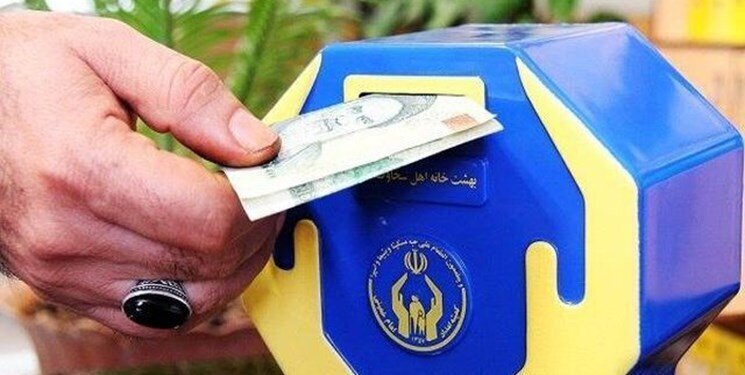Zakat collection rises 34% year on year

TEHRAN - Benevolent people across Iran donated 22.76 trillion rials (about $45 million) in zakat (alms) in the past Iranian calendar year which ended on March 20, an increase of 34 percent year on year, IRIB reported on Wednesday.
Zakat is the third of the Five Pillars of Islam and refers to giving a fixed portion of one's wealth to the needy and poor.
It enjoins every adult, mentally stable, free, and financially able Muslim, male and female, to pay a certain amount of money to support specific categories of people.
The profession of Faith (shahada) - the belief that "There is no god but God, and Muhammad is the Messenger of God" - is the first pillar of Islam. Prayer (salat), alms (zakat), fasting (sawm), and pilgrimage (hajj) are the other four.
As much as 80 percent of the collected zakat is spent to provide basic foods for the needy and the rest is allocated for development projects in underprivileged areas, Habibollah Asoudeh, the deputy director of the Imam Khomeini Relief Foundation, has said.
Iran has been named the 32nd most generous country among 114 countries by the World Giving Index 2021.
The ranking is done based on the three indices of ‘helping a stranger', ‘donating money', and ‘volunteering time’.
Iran is 38th in helping a stranger, 23rd in donating money, and 92nd in volunteering time.
Reports suggest that Zakat payments globally were particularly high in 2020 as a response to the coronavirus pandemic.
Benefactors have also donated money to free prisoners of unintentional crimes and help develop the health sector.
As an annual tradition, benefactors come together in a ceremony to raise funds for releasing prisoners of unintentional crimes during the holy month of Ramadan (which started on April 23 this year).
A total of 6,875 prisoners of unintentional crimes have been released over the past 12 months, Asadollah Joulaei, the head of the Blood Money Organization, said on March 26, Mehr reported.
Of the total released prisoners, 320 were male and the rest were female incarcerated due to inability to pay financial debts or inability to pay dues (workshop accidents and traffic accidents), Joulaei added.
The prisoners had a sum of 48.257 trillion rials (nearly $96 million) in debt, he noted.
Freeing prisoners of involuntary crimes is done in three ways. The first way is granting prisoners leave and the second way is providing a number of them with loans to be paid inside the prison.
The third way of assistance is the release of unintentional convicts by paying their debt.
The contribution of benevolent people and non-government organizations (NGOs) to the healthcare sector rose by 100 percent in the previous Iranian calendar year that ended on March 20.
Benevolent people and NGOs hold a 30 percent share of development projects in the healthcare sector, Mohammad-Javad Heidaripour, an official with the Ministry of Health, has said.
“In the past year, we experienced a 100 percent growth in charitable donations, which is very promising and heralds a new era in the field of public participation in the health system.”
Referring to the strong presence of benefactors for providing medical equipment and building medical centers in all the cities of the country, Heidaripour said: “Iran's rank in the field of philanthropy is very significant in such a way that the country's philanthropy rank in the world in the 10-year period ending in 2021 was 22.”
MG
Leave a Comment